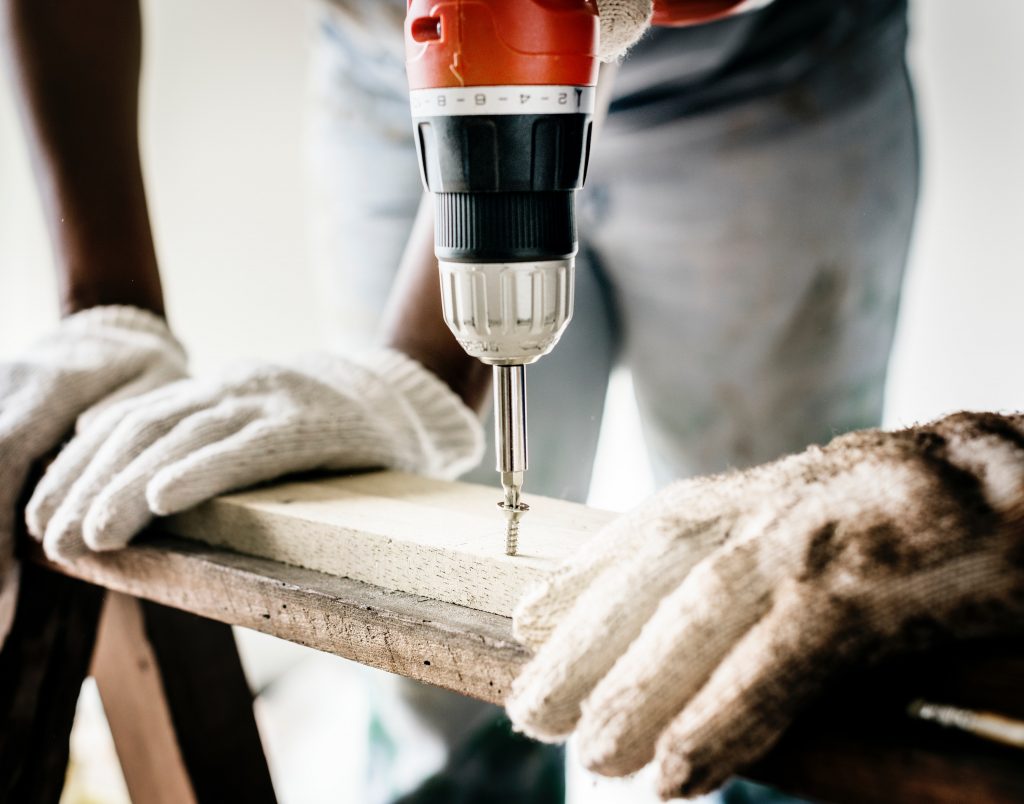Carpenters design products of wood that are used in a variety of structures.
In this article, you’ll find the details about the carpenter job and some typical tasks.
We will also cover the duties, requirements, salary, etc.
Article Table of Contents
What Does a Carpenter Do
Carpenters are responsible for the creation of wooden structures.
They can include artwork, doors, furniture, window frames, etc.
Earn your accredited, affordable Construction Trade career diploma online with Penn Foster in as little as 3 months!
Popular Programs
Carpenters mostly work individually.
Therefore, they have to stick to strict deadlines.

Duties of a Carpenter
- Interpret and adjust customer’s requests for design, materials, and other issues.
- Use rigging equipment to install and level building frameworks.
- Measure, shape, and cut wood, plastic, fiberglass, and other materials.
- Direct and coordinate construction workers.
- Examine and evaluate construction materials for damage, defects, etc.
- Design, build and install structures, windows, cabinets, molding, etc., as well as doors, staircases, structural frameworks, and other structures.
- Have knowledge about raw and pre-constructed materials.
- Install drywall and roofing ensuring that everything is well-leveled.
- Dismantle and demolish particular items.
Fundamental Skills
The duties of a carpenter are often very specialized.
Therefore, they need multiple personal abilities and skills.
Without them, an aspiring carpenter may face challenges and not be good at their job.
Knowledge:
Carpenters need an excellent knowledge of counter top materials and lumber grades as well as regular and power tools.
They also should possess advanced math skills to shape, measure, and cut the materials.
Additionally, they need to understand really well how to build and install different structures.
Communication:
Carpenters should interpret customers’ requests and build plans according to their requirements.
They also need to prepare mock-ups for customers to approve.
Management:
Carpenters need to know how to direct and coordinate construction workers so that the projects finish safely and on time.
They need problem-solving skills for anything that may arise at the site and follow the safety protocols.
They should also be prepared to work overtime and able to do their job with minimal supervision.
Detail-oriented:
Carpenters have to read, understand, and prepare blueprints.
They should be comfortable working at heights and have good stamina and physical strength.
They must have high attention to detail and great dexterity.
How to Become a Carpenter
Carpenters often learn on the job how to use hand and power tools.
They usually learn from others.
Therefore, carpenters gain and advance their skills throughout the entire career.
A lot of carpenters start out as helpers and advance their skills before joining apprenticeship.
Qualifications and Training
Carpenters only need a high school diploma.
However, mathematical or mechanical drawing courses and general vocational training can be of great help.
Training is the most essential part of becoming a carpenter.
Carpenter apprenticeship usually takes three to four years.
Every year, the apprentice has to meet two requirements, 2000 hours of on-the-job training and 144 hours of technical training.
Another requirement is to pass the safety courses, OSHA (Occupational Safety and Health Administration).
These courses can last for 10 to 30 hours.
When looking for a job, carpenters can acquire one of the following positions:
- Carpenter.
- Part-time Carpenter.
- Carpenter Helper.
- Carpenter Apprentice.
- Journeyman Carpenter.
- Master Carpenter.
- Lead Carpenter.
- Finish Carpenter.
- Trim Carpenter.
- Nonresidential Building Carpenter.
- Residential Building Carpenter.
- Form work Carpenter.
- Shuttering Carpenter.
Experience
To start working as a carpenter, having experience is favorable, but not obligatory.
Most employers prefer professionals with a minimum of five years of experience.
However, finding a job right after an apprenticeship having learned all the needed skills isn’t hard.
Working Hours
The typical schedule of carpenters is full-time, including evenings and weekends.
When deadlines are approaching, some overtime work can be involved.
Sometimes, working hours can be reduced due to extreme weather.
As of 2014, 1 in 3 carpenters was self-employed engaged mostly in the residential constructions.
They can set their own schedule.
Career Outlook
Based on the data of the Bureau of Labor Statistics, the carpenters’ employment rate is expected to grow by 6% until 2024.
Compared to other occupations with the 8% growth, it’s slower.
The growth is dictated by the need to repair roads and bridges as well as the construction of new homes.
The low level of growth though is due to the high level of automation in the industry.
Experience can affect the salary of a carpenter a lot.
The initial salary of a carpenter, not including bonuses, overtime, etc., is approximately $35,000.
In the course of the career, their pay can grow by more than $15,000 over 20 years.
Conclusion
Carpenter job is one of the most active in the construction area.
But they have a high level of job and salary satisfaction.
The work of a carpenter is highly valued and requires three to four years of an apprenticeship to enter the field.
